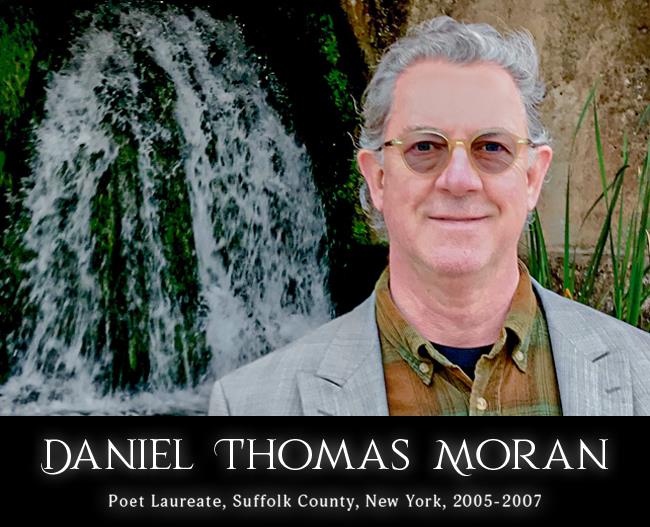A Selection of Poems by Daniel Thomas Moran



Ode to Introversion – Balance
New Hampshire – In the Kingdom of Autumn
Leonardo Flies Home – In the Kingdom of Autumn
For My Farmer’s Daughter – In the Kingdom of Autumn
Accumulations – In the Kingdom of Autumn
A Poem and a Chair – In the Kingdom of Autumn
What Color is Blue? – In the Kingdom of Autumn
Newtown – A Shed for Wood
Life Now – A Shed for Wood
Christmas Eve at the Waldorf Astoria – A Shed for Wood
The Last Time We All Saw Nannie in Gerritsen Beach – A Shed for Wood
A Gold Case – A Shed for Wood
Fireflies – A Shed for Wood
On the Dying of Amy Winehouse – A Shed for Wood
Thinking About the Death of John Updike – A Shed for Wood
To Debbie After I Had Eaten The Octopusses – A Shed for Wood
Some Kind of Sonnet for a Mayfly – A Shed for Wood
At The Louvre – Looking for the Uncertain Past
On Compassion – Looking for the Uncertain Past
Saturday Or Sunday Morning Early – Looking for the Uncertain Past
To My Young Son – Looking for the Uncertain Past
We Mortals – Looking for the Uncertain Past
On the Dying of Amy Winehouse
Among us, there are
those who will not make it.
Those who will
contend with mortality,
Wrapping themselves around it,
Unable to let go.
We watch them
as prey through a sight.
Cheer them
as the mob below,
Looking up at
the man on the ledge.
We are unsure
what to hope for.
We stand by
as they put
the pain into
their limbs and lungs.
We take what we desire.
They understand how
want has no confines.
But too soon
the bed is emptied of lovers.
And we are left
with the despair that knows,
What we do to one another,
is still the lesser, than that
Which we do to ourselves.
Daniel Thomas Moran
To My Young Son
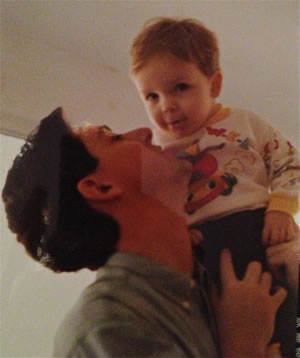 There was that day in October
There was that day in October
In a room familiar to no one,
Where your entirety rested
On less than a forearm measure.
My palm a cradle, my fingers
Expressed like new petals
Around your bud of face.
Now you like to adorn yourself
In my shirts and shoes, that
Old leather jacket you found
in the deep of my closet.
You want to stand back to back.
I feel you slide against me
As you lift your heels and
Reach to meet my shoulders.
You cast your palm on mine
And say many hopeful things.
But I tell you to sleep well,
To reach up without fearing.
The day will be upon us soon
When I will need to raise up
my face to see into your eyes.
When I will need to be
Reassured by your shoulders.
Someday I will need to
Call out to you to come close
And make of your hands
A cradle for my head.
Daniel Thomas Moran
Saturday Or Sunday Morning Early
This morning, I left our bed early.
You know how, with the early sun and silence,
my mind begins to spin like that mysterious machine
at the carnival which makes cotton candy.
I try to not disturb you, but I imagine you alone,
wandering in some storied forest with only
the lights of a big moon to suggest your steps.
Wherever you are, as our cats circle the room
stepping across clouds, I cannot be. Still,
you always tell me that you know when I am gone.
But I am never gone.
That night which folded us together has
more secrets to share with you, And I am
awake, in the company of many bushels of thoughts;
Conversations I will have, poems and letters
needing to be written, and many things I placed
on my nightstand just before I shut out the light
and turned to cradle you in that rich velvet.
This morning, I am in your chair, playing out
all the many cards of my life. The air, the piano
and our cats are all still and I am listening, as I do,
for you to call out in your sleepy voice and let me know
That you have returned.
Daniel Thomas Moran
On Compassion
At Darfur
the children, weak
from emptiness,
accord the flies
the tears
from their eyes.
Neither
dares ask mercy
of the dust
or the
Kings of The World.
Daniel Thomas Moran
At The Louvre
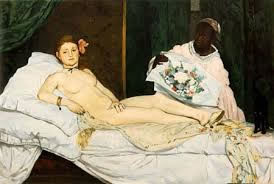 I’ve been to see The Mona Lisa.
I’ve been to see The Mona Lisa.
Traversed the angry Atlantique.
Dealt with Frenchmen;
their lunging taxis,
their coffee dense and bitter,
their sweet condescension.
I’ve stood for an hour
in a wind-driven rain.
Descended into the
great pyramid of I.M. Pei.
Paid the fare in francs
to wander that fortress
Past the winged Victory,
the armless Venus,
Vermeer’s Astronomer.
Five hundred depictions
of the dying Jesus and
the elegant portraits of
many Frenchmen who
would sadly lose their heads.
I followed the signposts,
heard my heels down
the lengths of
those long hallowed halls.
Then, at once she was there.
Her face looking back at me
over a field of cameras
held high above the crowd.
the subtle terra incognita of her
spattered with awe
and battery light.
And I took my turn,
slithered and gaped and
uttered excuse moi and
then turned my back again,
and wandered off to
look for Olympia.
Daniel Thomas Moran
Some Kind Of Sonnet For A Mayfly
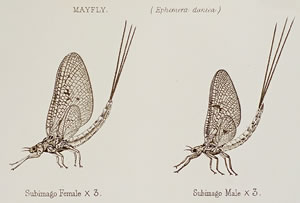
If it be true what learned people say,
The Mayfly lives for but a day.
I’ll not shed even the tiniest tear,
Or wish he’d make it one more year.
Instead I would concentrate on just how grand,
To live without next week’s demand.
And among the simple Mayfly facts is,
He never once has to file his taxes,
Or contemplate the waning moon,
Or anticipate any time but soon.
Never repay but only borrow,
Or check the weather for tomorrow.
It might be luxury, if I may be bold,
To be unconcerned about growing old.
No time for beddy-by, nor alarms to be set,
No time for longing or for regret.
Not to mention that on his day in May,
He might decide to alight or just fly away.
Another thing any Mayfly knows,
He won’t need to shop for Winter clothes.
Never wondering while watching the setting sun
Why living seems over before its begun.
The Mayfly is the only who can truly say
That the Mayfly has so truly had his day.
At eight in the morn his youth would flower,
Old age a twenty-fifth or twenty-sixth hour.
Never needing to strain his brain to remember,
Where he was on the twenty-fourth of September.
Oh Mayfly how strangely fortunate,
Is the lifetime brief and immediate.
Mayfly whose lifetime is so fleetly fleeting,
It would seem so surely worth repeating.
Daniel Thomas Moran
Listen to “Some Kind of Sonnet for a Mayfly” read by the author:
To Debbie After I Had Eaten The Octopusses
For Debbie Gustin
Last night, over a pizza,
I told you how, last week
I had eaten a marinated
baby octopus or two
in the Japanese restaurant.
Actually I ate four of them,
all tiny and tender and still,
(except for the one
which was a bit tough).
I told you that I
had first hesitated, seeing
them there huddled together
on the square china plate.
But I didn’t want to
embarrass myself
in front of my wife
(who was unsure about
the idea from the start),
or the little Japanese girl
who had served them up.
I felt like a crow, or worse,
some kind of viper,
robbing them of their
forever unfulfilled lives.
I left one there, just
to show that I wasn’t
heartless, even in my hunger,
capable of the truest mercies.
But then you told me
of the program that you
had just watched, on
The Remarkable Octopus,
how they were so smart,
possessed of true sentiments,
tender creatures, and
almost human you said.
I suppose we could have
also wept for the pizza.
Instead I thought that, perhaps
those babies might have
one day survived to become the
TERRIBLE GIANTS OF THE DEEP.
Lunging up to grasp a ship of refugees,
or even eco-tourists on holiday.
Dragging them down screaming
into a grave of briny blackness.
So, now I prefer to be:
That brave man who had
saved four fine ships, and
the lives of many scores of
old women and babies,
on the high savage seas
fleeing places of hunger and tyrants.
A great man with this one regret:
One should not trifle with monsters.
I should have eaten the last
of those wicked little bastards,
and asked for a second helping.
Daniel Thomas Moran
Thinking About The Death Of John Updike
Out there in the world,
some brittle oak leaves
have survived the worst of it.
They cling, like the rest of us,
beset and shivering on
threads in March’s wind.
The sun barely changes,
traipsing as it does, from
south to north and
then to south again.
And the blueness of the sky?
Well, what has not already
been well said about that?
I am listening
to the punk squelching
of Patti Smith, wriggling
in her tender agonies,
on a filthy stage on
The Bowery thirty-four
long years ago.
The heat has kicked on, and
a manufactured comfort
swirls up from the registers.
It is not the wind moving
outside that I think I hear.
In the slick pages
of the newest New Yorker,
something has pushed
up through the hard soil.
And I find myself living
the dying of John Updike.
The last of his poems have
lain down before me,
heads reclined into the
posed configuration of
a treacherous peace,
their toes pointed upward
toward ambiguous perpetuity.
I would have to say that
he was not so much unlike
any of us, we who have been
fated to finally become
the likeness of one another.
We believe what we
cannot understand and,
we know that we will go,
just as we came:
alone, wondering, and
empty handed.
Daniel Thomas Moran
Listen to “Thinking About the Death of John Updike” read by the author:
Fireflies
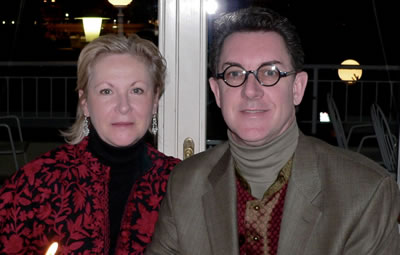 For Karen
For Karen
There was the white house
with the tiny rooms,
Beside the blonde wheat
which danced with a wind,
Which came late each day
to carry in the gloaming.
On those warmed nights
July spilt with stars,
There were the fireflies
that played against the
flecked blackness and the
whispered hissing of voices.
And there was the road
which led to places which
could not be seen.
Above my head, as I ran,
Over the leaning wheat,
A horizon too far to be considered.
Now in the distance of years.
Cradling a glass of wine to warm me.
There is the river that runs the night.
And the fireflies on new shoots of
Primrose, Lupine and Butterfly Weed.
Beneath these abiding white pines.
My head against a chair that rocks me,
I am thinking of wheat and roads.
A house filled with ghosts and strangers.
The dark alighting around me.
My hand under a glass filled with light,
clarified and sweetened with age.
Daniel Thomas Moran
A Gold Case

I have a gold watch.
Bought in Ile de la Cite
on my last Lune de Miel.
It runs well, but
twenty-three minutes
fast every day.
I look at it, but
I never know, what
time it might really be.
It is always
sometime
just prior.
Like me, my wife
loves the watch.
Just as she loved Paris.
She often tells me
that she loves
me as well, except
For my always
being early, thinking
I am right on time.
Daniel Thomas Moran
The Last Time We Saw Nannie in Gerritsen Beach
Nannie Lovejoy’s house
sat at the foot of a pier.
Her front yard was a bulkhead.
In the near distance,
the ribbon of madness
called The Belt Parkway
girdled the great belly of Brooklyn.
Nannie was there with Aunt Dot,
grown permanently crabby from
living a long life with her mother.
Nannie sat fixed in her chair,
hair deep white, and far too old
to bother standing to greet.
Who knew her name was Sadie,
short for Sarah, her own mother’s name?
Richard lived alone downstairs,
in the basement apartment.
He had once belonged to someone,
but now he was not right.
We only knew him as Cousin Richard,
who lived his life downstairs,
hanging onto his circumstances
by only a thread.
Aunt Dot made us tea and
offered simple cookies from a box,
happy to see her little sister, or not.
We didn’t stay long,
even with the thought
that they would all be dead
before another day like this.
We lived by my Grandfather’s clock,
he never forgetting that
to Dot and to Nannie, he would
always be that Miserable Guinea Bastard,
who had married my Grandmother.
They say The Lovejoys were once
colonial aristocrats in Maine,
with land and with treasure
enough for a kingdom.
Now it was just Nannie,
in her chair by a bulkhead
in Gerritsen Beach, preparing
her next complaint for Aunt Dot.
Before her, jammed into
her tiny front room, overlooking
a hundred yards of oily water,
three generations
of people she had spawned and
that Miserable Guinea Bastard,
hand in his pocket, and
jingling his car keys.
Daniel Thomas Moran
Listen to “Thinking About the Death of John Updike” read by the author:
Life Now

It is not so different, really.
There are oaks and wildflowers,
and stones in our garden.
In the house where we sleep,
there is a case of books,
and they are our books.
The sunlight is most
beautiful in the early morning
just before the world gets busy.
There is work to be done
during each of our days, as well.
Work which makes us feel
tired and contented.
There is also water.
Not empty and still,
but thin and silken over
and amidst the big rocks.
All the long day and night
It makes a sound like wind.
It travels while our travels
have ended, Here.
There is a stately heron, who
comes to fish in the noon.
Yesterday I saw the hummingbird,
only minutes after I had reached
to hang his red feeder.
I was pleased at his arrival.
I spent a small time wondering,
how he knew where to find us,
just as he had done in
all those green summers,
far away.
Daniel Thomas Moran
Listen to “Life Now” read by the author:
The Blue Heron
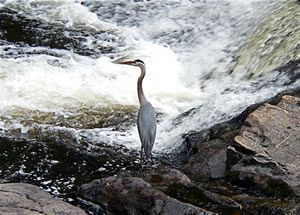
Within the depiction
which is this river,
The Blue Heron is composed.
In the moving world,
like the rock which
is his perch,
He must be the stillness.
He knows that what
he needs, will come.
He must be ready for it.
This morning’s rain runs
off the slate of his back.
He understands, somehow.
The rain is the river, and
The river is the fish, and
The fish is himself.
Daniel Thomas Moran
Listen to “The Blue Heron” read by the author:
Newtown
The sounds we hear,
are the noises we make.
Of doors slamming shut,
Of lights put out,
Of the flesh being torn from us.
Tranquility has no place left to it.
We have lost the notes
of the song that starts the day.
We replace it all
with the expressions of the lost.
More sirens and church bells.
The beckoning to our angels.
The laments to the indifferent clouds.
Can we bear to
see ourselves yet again, in
all that’s been vanished?
Who among us has words
to explain the slaughter
of the babies of strangers?
Who are these people
we claim to not know,
But us?
Daniel Thomas Moran
Listen to “Newtown” read by the author:
What Color is Blue?
There are
those strands
of our reality
which defy our
words.
Limply, they
render answers,
Which simply
refuse
to appease.
I thought that
I knew blue,
Until I chanced
to sail on the
Mediterranean.
Now the bluest
of skies only
disappoints.
It makes me blue
to think about it.
Trapped in
the cage
of our senses,
All is but
air and light,
In a sea of
things which
move inside us,
in colors we are
unfit to describe.
Daniel Thomas Moran
A Poem and a Chair
For Peter Galbert
A poem is a chair,
a chair, a poem.
Don’t ask me
to explain.
I have built
both with only
my bare hands,
so I know.
You will just
have to trust me.
If you wish me
to also say
that a painting
is a chair,
Or that a concerto
is a chair,
I will.
They are.
But, not like
a poem is a chair.
Have a seat.
Listen.
Daniel Thomas Moran
Accumulations
I surround myself
with familiar things.
Things collected for
no good reason.
Things which take up
the empty spaces in a life.
Things which reassure and
remind me of where
I have been, who I am.
One day in 1961,
when I was about four,
my Mother saved two
hands full of bits she
found in my pockets.
Things found during
a boyhood day which
seemed important,
even useful, too good
to leave languishing
among the overlooked.
A button, a toy soldier,
a small spring, and nine
things with no name.
Nothing has been
changed by time.
Everything has a meaning,
that I have assigned, and
a name I have given it.
My pockets are still
filled each day, emptied
into the pages of books.
Someday, soon after
my leaving, and
just as I had done,
my children will wander
among these walls and
over these floorboards,
and gaze at it all.
They will wonder what
it was I was thinking, and
realize just how much,
will remain as riddle.
Then they will hire a man,
who drives an old truck,
to come and take it all away.
Daniel Thomas Moran
For My Farmer's Daughter
for Karen
She says she
hates the gardening,
but she loves the
new greens and all
their tender blossoms.
It is something like
how she hates the
winter, but loves the
magic that is snow, falling
and falling all afternoon.
In the autumn she
loves how the hills
slowly surrender to
the rising color,
but she is
disquieted by all the
death, and the utterances
of loss expressed by the
drying crackle of litter.
Maybe it is
the steep recall in a
pain felt in the knees,
or how the soil
finds its way into
the swirl of a fingertip.
Maybe it’s the short
light, and deepening cold,
maybe time spent to
fret over whether the
birds of our summer
are safe somewhere, and
Wondering through
many November days,
who is feeding nectar to
our ruby-throated children
on their long, long descent
down the hemisphere.
I remind her that
she is a farmer’s daughter.
I remind her how once
she spent the long flat days
defying the Minnesota wind,
tending to pens filled with
eggs and white chickens.
And she explains
that it was her imagination
that came along to save her,
one purple day when she
was very young, and first
noticed that the sky was
a giant over her head, and
the roads in every direction
seemed to go the very
same place.
So, now we
are of that age when
complaint is a currency,
where nothing at all
seems the way we think
we remember it.
But, we have found
a place and it is ours,
where we must be grateful
for even January, and for
the line of black beneath
our nails, and the ache
in our knees which reminds
us we are alive, and that
the gardens we’ve made
beckon to be watered,
yet again.
Daniel Thomas Moran
Leonardo Flies Home
Leonardo Da Vinci, took
his place across the tiny isle
from me, and buckled
the belt of his seat.
I was certain it was him.
Too timid to speak,
I listened as he told
the attendant in the
blue-black skirt-suit,
he was returning
from a long overdue visit
with his kid sister in Phoenix.
The New Mexico sun
remained red and settled upon
the bareness of his cheeks.
The layover at Kennedy had
granted him just enough time
to grab a Coke and a slice.
He studied the movements of
her calves carefully as she
trolled ahead in the cabin,
gauging all of the tender
architectures of her sway.
Sketching upon his napkin,
sipped his orange juice, and
leaned back into a reverie.
Beneath his hair, wiry and limp,
Against a raggedy blanket of beard,
I could almost hear the notes
of machines assembling in his head.
The gears and wings, the
rockets and parachutes, the
motions that made the
birds lift skyward, and those
contraptions of battle
that would live to eclipse
horse and sword and shield.
Traipsing the heights of
the atmospheric perspective,
describe Earth’s lights reflected
against the cold black of the Moon.
Devoted as I have been to the
celebration of life’s soft edges.
I thought to touch his shoulder,
hoping we might speak.
I longed to understand the
miracles of chisel at stone, how the
oily applications of ground pigments,
became lambency and shadow,
The virgin he settled among the rocks.
The tenderness in the eyes of his angels.
The satin cheeks of the Italianate ladies.
The despair of Jerome in his wilderness.
Judas clutching his purse on the wall in Milan.
The mounts of his imagination in pitched battle.
Soon, my time had passed, our dinners arrived,
and I was left to the contentments of flight
and a wandering, wondering mind.
Below us the ascending cloud mountains,
below them, the dappled cerulean sea.
Daniel Thomas Moran
New Hampshire
They came north, to this
kingdom of stone and frost,
Felling trees the size of ships
to make splinters for shelter.
Harnessing the muscle
of great of beasts,
to drag stone and stump,
and scratch at the ground.
Stacking their obstacles
one over the next,
they patterned the meadows
and enclosed their hopes.
They begged sun and water,
coaxed what they could,
from the unmerciful dirt,
Before the days grew short,
and New England autumn
lit the hills in savage light.
Among all living things, they
learned to abide the winters, that
entombed the hills and hollows
in the whitest of silences.
Now, coursing along roadsides,
their walls stand as memory,
Tumbled by trees, split
by ice and thaw and ice,
In shade and in sunlight,
soft-greened with moss.
The woods now speckled
with stone cellar holes,
Collapsing under the slow
and certain burden of time.
Here their homes stood, and
their sturdy, steadfast hearts
battled the marching forest.
This murmuring river
I hear, they too heard.
This slivered silver luster
I ponder, they too pondered.
And now, as then
these abiding stars, drape
the lingering nights, in dreams.
Daniel Thomas Moran
Ode to Introversion
Philosophers of antiquity
have propounded down through the ages.
As have wisemen, prophets and oracles,
Bodhisattvas, sybils and sages.
Our inscrutable humanity,
has perplexed them and astounded.
Head Shrinkers, soothsayers and gurus,
all confessed they were confounded.
There is one true truth to be embraced,
If we can clear life’s junk and see things.
Human beings are best enjoined,
to avoid other human beings.
Daniel Thomas Moran
The Man Who Died Just Before the Pandemic
The man who died
just before the pandemic
was unaware.
No one saw a purpose
in explaining to him
that something far too
small to be dreamed,
had made its way from
a caged animal,
deep into the breaths
of a man who lived in
a place on the other side
of the world, or that
it was coming to find him.
The man who died was
too sick himself,
suffering from a body
which had lived
quite long enough.
He did not know that
the world had been
inverted, that everyone
had now come to share
this one thing.
He would not be
among the old and infirm,
who were lying in wait.
He would not be afraid.
The man who died
just before the pandemic
had already folded all of
his life’s fears into the
soft hands who held him.
He did not need to
see the evening news, or
the morning news, and
all the many, too many
winded words of distress.
The man who died
just before the pandemic
did not know that
no one would be there
to see him satin-laid
in his dark blue suit.
He did not know that
no one would be there
to gently lower him, or
to toss flowery fronds
into the hole in the Earth
where he would ever sleep.
Perhaps one day,
in a time far off,
when the world
will have reassumed
its bouyant blue balance,
People will recall
the man who died
just before the pandemic,
And that he did so
just in time.
Daniel Thomas Moran
“The water you touch in a river is the last of that which has passed, and the first of that which is coming. Thus it is with time present. Life, if well spent, is long.”
LEONARDO DA VINCI
